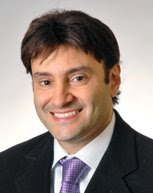Amongst surgeons it is common to say "the only surgeons who do not get complications are those who do not operate". Obviously, just like in any other technical field there are gradations of skill amongst surgeons as there are amongst for example pianists. Excellent surgeons like excellent pianists are far less likely to be off key. However, the human body is also like a piano some are better than others, a finely tuned grand is going to perform better than an out of tune banged up old piano. Some patients because of genetics and environment and underlying medical conditions do not react to surgery as well as another patient might even if the surgery performance was identical. In other words, many surgical complications (intra-operative and post-operative) are just sheer bad luck for the patient and for the surgeon and are not due to surgical error.
I will talk a bit about refractive surgery complications here in this blog as I believe that many misconceptions exist regarding them. By nature I tend to be blunt and very frank, and I will say when a complication is more likely to be surgeon related than just simply bad luck.
In LASIK one common complication post-op is called DLK (diffuse lamellar keratitis) and it is essentially unrelated to the surgical performance or to the surgeon. It essentially is "like an allergy" to the surgery - some patients bodies react to surgery by mounting a stronger immune response than the norm. The immune system orders WBCs (white blood cells) to go to the eye and to the flap of the eye to eliminate the "insult". The only problem is there is no insult beyond the desired surgery and then the WBCs do more harm than good by attacking the flap. If left untreated the DLK response can result in flap scarring or melt and a permanent reduction in visual acuity. Fortunately, if caught immediately it is easy to handle by modulating the immune response using steroids either topically or orally, or both. The WBCs which have already arrived may also be washed out from under the flap speeding up the resolution and minimising the risks of further complications.
Sunday, March 23, 2008
Surgery & Complications
Subscribe to:
Post Comments (Atom)


No comments:
Post a Comment